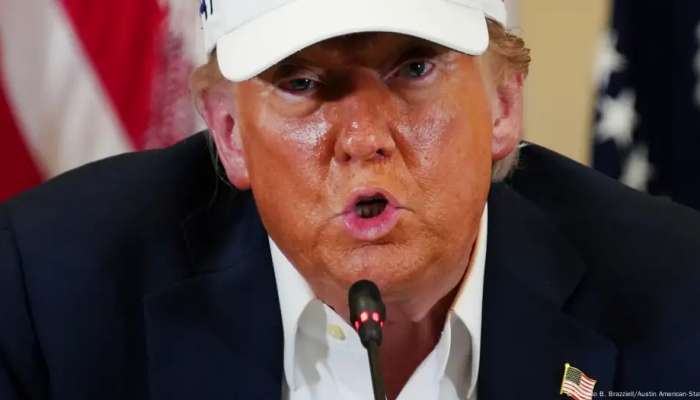
Washington DC: The United States is set to impose a 30% tariff on all goods from the European Union from August 1, US President Donald Trump said on his Truth Social platform on Saturday.
The EU had been prepared for such a move, which comes a day after Trump told Canada's Prime Minister Mark Carney that he would impose a 35% tariffs on Canadian imports.
The 27-member bloc and the US failed to reach an agreement to strike a comprehensive trade deal, including zero-for-zero tariffs on industrial goods.
In addition to the tariffs on EU goods, Trump posted another letter to his platform, declaring a 30% tariff rate on goods from Mexico beginning August 1 as well.
The US president said the trade relationship with the EU has been "unfortunately, far from Reciprocal." As such, "we will charge the European Union a Tariff of only 30%," he said.
Trump has frequently described tariffs as charges on other countries. However, the burden falls on consumers within the US, as tariffs make imported goods more expensive and thus less competitive.
"Please understand that the 30% number is far less than what is needed to eliminate the Trade Deficit disparity we have with the EU," he added, referring to the difference in goods imported from the EU and goods exported to the EU.
Trump invited the bloc to negotiate further, writing in his letter to European Commission President Ursula von der Leyen that high tariff rates would be dropped if "the European Union, or countries within the EU, decide to build or manufacture within the United States."
Trump has spent the week sending letters to trading partners, announcing new rates for a number of countries like Japan, South Korea, Canada and Brazil.
Trump imposed a 20% import tax on all EU-made products in early April as part of a set of tariffs targeting countries with which the US has a trade imbalance.
Hours after the nation-specific duties took effect, Trump put them on hold until July 9 at a standard rate of 10% in a bid to calm turbulent financial markets and allow time for negotiations.
But the president expressed frustration at talks with the EU. In May, he threatened to impose a tariff rate of 50% on EU goods into the US.
That would cause a price hike on everything from Italian leather goods to French cheese to German electronics in the US.
Then Trump announced that universal tariffs that were due to kick in July 9 would be delayed until at least the beginning of August.
The EU currently faces 50% US tariffs on its steel and aluminium exports, 25% on cars and car parts and 10% on most other products.
How has the EU reacted?
Ursula von der Leyen said the EU is prepared to take the necessary steps to safeguard its economic interests if the US proceeds with the 30% tariff rate.
In a statement, the European Commission President said that the bloc remained ready "to continue working towards an agreement by August 1."
"We will take all necessary steps to safeguard EU interests, including the adoption of proportionate countermeasures if required," she added.
French President Emmanuel Macron said his government shares the European Commission's "very strong disapproval" of Trump's announcement, which came despite "weeks of intense engagement."
"France fully supports the European Commission in the negotiations, which will now intensify," Macron posted on X, adding that he still hopes "a mutually acceptable agreement" will be reached before August 1.
The French president added that the bloc would need to speed up "the preparation of credible countermeasures" if no agreement is reached before the new tariffs take effect.
The EU has the ability to enact the Anti-Coercion Instrument (ACI) which allows it to retaliate against countries seeking to pressure its members. It has been repeatedly brought up as a possible response to Trump's threats.
The ACI can limit access to companies from those countries to public procurement tenders and target services trade or investment.
Germany's Economy Minister Katherina Reiche, meanwhile, warned that the US tariffs "would hit European exporting companies hard."
She also said that they would have a "strong impact" on the US economy and consumers, as she urged for a "pragmatic outcome" to be reached "quickly."